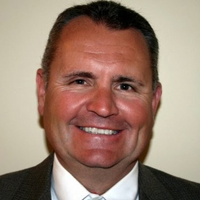By Ian Berger, JD
IRA Analyst
Question:
I am 72 years old and converting my traditional IRA to a Roth IRA a little at a time each year. Do I need to concern myself with a 5-year rule for earnings if I were to withdraw ALL my Roth IRA at once?
If I do have to address that issue, is there a way to track earnings for newly converted funds?
Regards,
Marc
Answer:
Hi Marc,
Whether you need to be concerned about the 5-year rule depends on when your first Roth contribution was made or your first conversion was done. The 5-year clock for tax-free Roth earnings starts ticking on January 1 of the year of your first Roth contribution or conversion. (That rule applies even if you made a contribution many years ago and have since emptied and closed your account.) This clock does not restart with each Roth conversion. So, as long as you delay your Roth IRA withdrawals until after the end of the initial 5-year period, earnings will be tax-free.
However, if your Roth 5-year clock just started recently, possibly with your first conversion, you’ll need to wait before the earnings can come out tax-free – even though you are over age 59 ½. IRS Form 8606 is filed with each conversion and will report the taxable amount. If you do need to withdraw your entire Roth IRA before the close of the 5-year window, Form 8606 will show your basis.
Question:
Can you clarify eligibility surrounding the annual additions limit contribution, also referred to as the Internal Revenue Code (IRC) 415(c) limit? For 2019, the maximum annual addition limit contribution is $56k.
My questions are two-fold:
1. Is the 415(c) limit applicable only for a solo 401(k)? Or, is it available to an employee who – in addition to their regular elective deferral of salary – makes an additional contribution?
2. If it is available to an employee, then how does one initiate making an annual additions limit contribution?
Thank you,
Don
Answer:
Hi Don,
1. The 415(c) annual additions limit applies to all 401(k) plans [as well as 403(b) plans] – not just solo 401(k) plans. This limit ($56,000, or $62,000 if you’re age 50 or older) restricts the amount of total contributions that can be made to any plan in any year. Total contributions include elective deferrals (pre-tax and Roth), employer contributions and after-tax employee contributions. The 415(c) limit is different than the elective deferral limit. That limit (for 2019, $19,000, or $25,000 if age 50 or older) restricts the amount of elective deferrals you are allowed to make in any calendar year.
So, if your plan offers after-tax employee contributions, you make those contributions even if you have maxed out on your elective deferrals – as long as the total elective deferrals, after-tax contributions and company contributions doesn’t exceed the $56,000 (or $62,000) limit.
2. A plan is not required to offer after-tax employee contributions. You’ll need to check with the plan administrator to see if your plan does. If your plan doesn’t offer after-tax contributions, the plan could always be amended to allow them. You would elect to make 401(k) after-tax contributions the same way you make elective deferrals.
https://www.irahelp.com/slottreport/roth-ira-withdrawals-and-company-plan-limits-today%E2%80%99s-slott-report-mailbag

